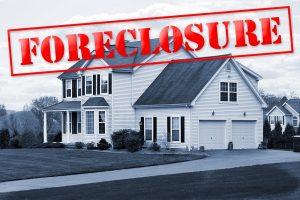- Free Consultation: 916 459 2364 Tap to Call
Mortgage Debt Options

Getting behind on your house payments can happen to the best of us. Whether job loss, medical costs, or other life stressors have led you down a road to mortgage debt; there are solutions that can resolve your problems with mortgage debt.
Foreclosure Or Bankruptcy?
There are two general types of foreclosures — judicial and non-judicial. Most mortgage loans are secured by a lien on your home. In a judicial foreclosure, the lender files a complaint in court asking for a judicial foreclosure. If the lender wins, the court orders your home sold at an auction. The proceeds of the sale go to the lender to pay off the mortgage debt. In a non-judicial foreclosure, the lender uses a power of sale clause in the mortgage. The clause allows the lender to sell the property in a non-judicial foreclosure. The lender must follow the procedures required by the mortgage loan documents and state law. If you have a mortgage loan and can’t pay your mortgage, you may want to consider the benefits and drawbacks of a judicial foreclosure. There are, however, benefits of a judicial foreclosure. The lender must go through the court process, so the foreclosure process takes longer. All foreclosure procedures are strictly followed by the lender, and the lender must wait to file a foreclosure complaint until after the loan is more than 90 days delinquent. The drawbacks of a judicial foreclosure include giving up the house and any equity you have in it and the borrower can be left with liability to the lender even after the sale completes.
If you file a bankruptcy case to reduce your debt after a property has been sold at a foreclosure sale, you might be able to eliminate liability to the lender that remains after the sale. However, you may want to consider your options before the lender forecloses. You may be able to sell your home to a third party or negotiate a payment plan with the lender prior to the sale date. In addition, homeowners can utilize chapter 13 bankruptcy to catch up the arrears on the mortgage when filing prior to a lenders foreclosure auction. Most chapter 13 reorganization plans provide for as much as sixty months to repay the missed payments. However, the homeowner also needs to consistently pay the regularly monthly payments on the mortgage that arise in the future during the chapter 13 case.
If you are suffering with missed mortgage payments or the risk of foreclosure, contact our Elk Grove bankruptcy attorney office today to discuss your options. Missed mortgage payments can quickly lead to foreclosure, which can turn into a financial disaster overnight. Don’t wait another day to find out how to stop foreclosure and resolve your mortgage debt today.











